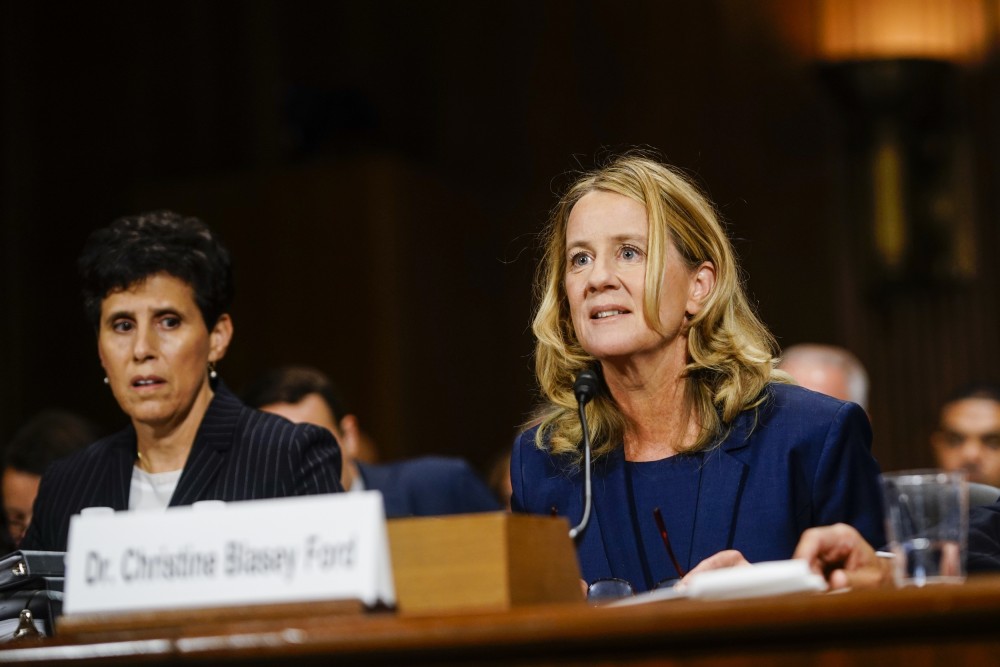The power of Christine Blasey Ford’s testimony
Ford inspired survivors to tell their own stories of sexual violence. It’s up to the rest of us to respond.

Christine Blasey Ford called it her “civic duty” to tell government officials about her memory of being sexually assaulted by Brett Kavanaugh. While publicly recounting the details of a traumatic attack goes beyond the typical call of civic duty, her testimony has indeed been an enormous public service. It has advanced the painful but necessary work of cracking open the façade that hides America’s culture of sexual violence.
To begin with, Ford forced Kavanaugh, the U.S. Senate, and the entire nation to confront the powerful message of the Me Too movement—and in doing so, she dramatically exposed some of the powerful forces arrayed against those who speak out about sexual assault. Ford’s courage in appearing before the Senate Judiciary Committee was obvious to anyone who witnessed the hearing, as were the steep personal costs for her and her family. Equally obvious was how vulnerable someone in Ford’s position is, and how easily those in power can defend themselves by dismissing or ignoring survivors of sexual assault.
Ford’s courageous testimony also inspired survivors around the country to tell their own stories. In the 72 hours following the Senate Judiciary Committee hearing, calls to the National Sexual Assault Hotline spiked by 338 percent. Anecdotal evidence on social media indicates that many survivors were inspired by Ford’s testimony to talk with their pastors about assaults they had experienced. In a more public setting, Fox News anchor Chris Wallace reported that his two daughters were moved by Ford’s story to talk with him for the first time about things they had experienced in high school.





